
#MeToo presents an opportunity to make amends and do better. Individual congregations and whole denominations can adjust how they respond to victims. They can confess ways in which they have shamed and silenced and expressed contempt. And they can make reparations to those whom they have hurt, even unintentionally.
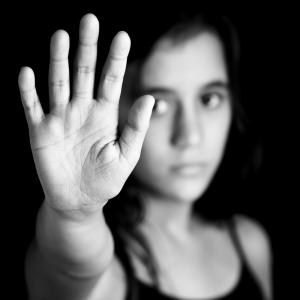
The fact that the journalistic “scandal” got more public attention than the original story should give us pause. And the narrative that is playing out in the story’s wake — the one that says the college campus rape crisis is nothing more than a hoax perpetrated by the left — is disturbing.

Bill Gothard, an Illinois-based advocate for home schooling and conservative dress and who warned against rock music and debt, has been placed on administrative leave after allegations of sexually harassing women who worked at his ministry and failing to report child abuse cases.
Gothard’s Institute in Basic Life Principles was once a popular gathering spot for thousands of Christian families, including the Duggar family from TLC’s 19 Kids and Counting. Gothard’s Advanced Training Institute conferences were also popular among devotees of the Quiverfull movement, who promote large families and eschew birth control.
He’s also rubbed shoulders with Republican luminaries. He and former presidential candidate Mike Huckabee were photographed at a campaign lunch together; former Georgia Gov. Sonny Perdue spoke at one of Gothard’s conferences; and Sarah Palin, when she was a small town mayor in Alaska, attended his International Association of Character Cities conferences and declared Wasilla among Gothard’s “Cities of Character.”
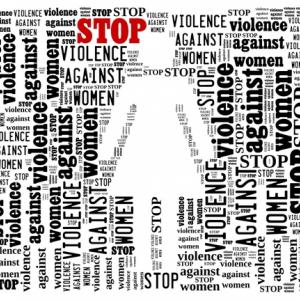
Christian men - males who are caught up in the ancient, raw, and radical Jesus movement, this is to you:
It's high time we say something, do something - good Christian men, stand up. Women are being raped and sexually abused across the world, and we continue to theologically shrug our shoulders. It's just the way it is, we say.
Whether we want to admit it or not, we turn a blind eye to the ways in which our holy scriptures have sanctioned this throughout history.
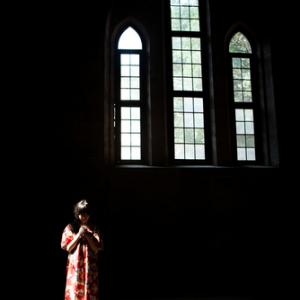
Sojourners is offering an important opportunity for Christian churches to examine their attitudes towards women. Following up on an article by Michelle A. Gonzalez entitled “Breaking the Habits of Machismo,” Gonzalez and Jim Wallis, president of Sojourners, will conduct a live video discussion on Wednesday, Feb. 12 to “discuss what the Bible really says to encourage, affirm, and empower women and girls in their call to be leaders.”
Judging from Gonzalez’s article, this conversation will focus on what it means to affirm that both men and women are created in God’s image. She begins her article with the Common English Bible translation of Genesis 1:27: “God created humanity in God’s own image, in the divine image God created them, male and female God created them.” Though she points to important changes taking place in Christianity today, Gonzalez traces the legacy of Christian thinking on womanhood that has elevated men and devalued women, instilling “habits of machismo” in our churches and our culture that are difficult to break.
But break them we must, Gonzalez argues, if we want to free both our theology and our practice from “male-oriented power structures.” Amen, sister. Because this is about more than equal employment opportunities for women in church administrative structures, of whether we are allowed to “preach, lead from the altar, celebrate communion, administer rites, pastor congregations, or teach.” What’s at stake in this conversation is whether Christians — and I think this is a call to American Christians in particular — whether American Christians are willing to dismantle a long-held justification for violence against women, not just in our country, but around the world. Gonzalez herself points out that patriarchal “attitudes can lead to greater violence against women, such as we see in the increasing exploitation and attacks on young women and how social media is used to perpetuate and document these horrific acts,” but this is her only nod to the issue of gender-based violence. Let’s add to the picture a look at the violence perpetrated by men against female bodies that has become to typify conflict zones around the world.
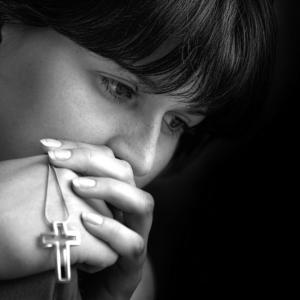
Today churches are often rocked with sexual harassment and abuse perpetrated by priests and clergy. Yet, sexual harassment and abuse to clergy, specifically clergywomen, is often swept under the rug.
A 2007 study by the United Methodist Church on sexual harassment and abuse found that nearly 75 percent of Methodist clergy women have experienced sexual harassment and abuse. The common settings for such harassment are church meetings and offices where perpetrators are mostly men and increasingly laity. “Sexual harassment destroys community. This alienating sinful behavior causes brokenness in relationships,” the study states.
Despite the prevalence of increased boundary training and education, the 2007 study found that only 34 percent of small churches and 86 percent of large churches have policies to handle such situations.
In 30 years of ministry, diaconal and ordained, I have seen that church politics, ignorance of or lack of policies and procedures, tolerance for inappropriate behavior, status of perpetrator, and money are obstacles to dealing with sexual harassment and abuse to clergy in a healthy way.
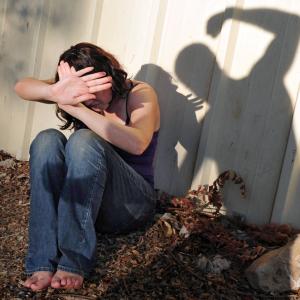
Sexual and gender-based violence (SGBV) is a public health emergency devastating its victims and their families physically, emotionally, mentally and spiritually. Sexual violence is a horrific act that the perpetrator forgets, but the survivor does not, with the consequences continuing – from the posttraumatic stress, to compromised health to the lower survival rates of her children. And these crimes are not just occurring in areas of war and civil unrest. Rather, they are a part of deeply ingrained behavior in all levels society the entire world over. This year, the World Health Organization reported that 1 in 3 women globally will experience SGBV in her lifetime. Studies in the United States produced similar findings.
Rape is a war crime and can be an act of genocide. Yet we often do not respond adequately to it as a global society. For example, in my country, women impregnated by rape may pass HIV to their babies. Children born from rape may also suffer community rejection because of the atrocities of their conception. SGBV programs must take this dynamic into account.
SGBV requires a holistic response that does not forget the indirect victims of rape, the spouses and children of the victims and the community at large. We must remember that rape tears at the social fabric of communities because victims and their families often “lose” themselves. This is why the faith community is so important to this effort.
The faith community is a powerful agent of social change and possesses a founding principle of love and spirituality as well as the power and influence to lead individuals and communities to respond appropriately and effectively to SGBV. Faith leaders and their communities have immense power to reach all levels of society as well as a proven track record of leadership on such issues as poverty alleviation, HIV/AIDS and malaria.
Yet despite sexual violence’s being endemic the world over, leaving massive destruction in its wake, the faith community has remained virtually silent on this issue and sometimes has even perpetuated the stigma and discrimination of SGBV survivors.
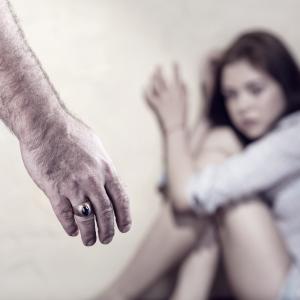
In the United States, more than 1 in 3 women (and 1 in 4 men) havereportedly experienced sexual assault, physical violence or stalking by an intimate partner during their lifetime.
These are not numbers that disappears when you walk in to a church. Christian women are subject to sexual and gender-based violence, too – but when is the last time you heard about this issue in a church?
Talking about the pain and fear of intimate partner abuse can seem daunting, but there are resources to help faith communities get started. On Sunday, Nov. 24, faith communities have an opportunity to speak out against sexual and gender-based violence in the aptly named Speak Out Sunday.
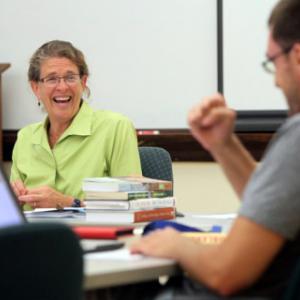
ST. LOUIS — Kristen Leslie began her 2003 book, When Violence Is No Stranger, with a verse from Psalms, a nod to her training as a theologian.
“It is not enemies who taunt me — I could bear that; it is not adversaries who deal insolently with me — I could hide from them. But it is you, my equal, my companion, my familiar friend…”
The book’s subject was acquaintance rape, and it got the attention of a chaplain at the Air Force Academy. The school was then reeling from a Pentagon report indicating that 7 percent of its cadets reported being the victims of rape or attempted rape. Nearly 90 percent of the perpetrators were their own classmates.
Leslie, now a professor of pastoral theology and care at Eden Theological Seminary in Webster Groves, Mo., was invited to Colorado to consult with academy leaders on how to train Air Force chaplains to deal with sexualized violence on campus.
Now, a decade later, the U.S. Navy has come knocking.
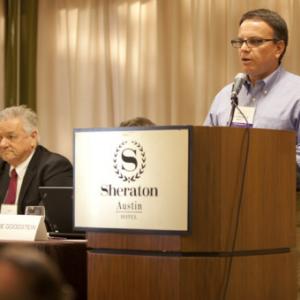
The Christian mission field “is a magnet” for sex abusers, Boz Tchividjian, a Liberty University law professor who investigates abuse said Thursday to a room of journalists.
While comparing evangelicals to Catholics on abuse response, ”I think we are worse,” he said at the Religion Newswriters Association conference. But it’s harder to track.
“Protestants can be very arrogant when pointing to Catholics,” said Tchividjian, a grandson of evangelist Billy Graham and executive director of Godly Response to Abuse in the Christian Environment (GRACE), which has investigated sex abuse allegations.

Unfortunately, sexual violence on college campuses is a widespread reality. As many as 20-25 percent of women will face attempted or completed assault over the course of their college tenure. Contrary to popular myths about “stranger-danger,” 9-in-10 of those victims will know their attacker.

Editor’s Note: As we continue reporting on the important topic of sexual abuse and violence, Sojourners has opened up the Sexual Violence and the Church blog series for submissions. This piece is one such submission. If you are interested in submitting a post for the series, please email the Web Editor HERE.
"From the beginning …" began my pastor, rising slowly from his armchair. With his next words, he broke my world apart. From the beginning, he had been attracted to me as a woman. From the beginning, his interest in me had been personal. He told me the reasons why, and then he said these words: "If we were both single, and if I weren't your pastor, we'd be going out to dinner." He paused a long beat. “And we’d see where it went from there."
Were my pastor's words an act of sexual violence?
When we hear the words "sexual violence," we may envision a forcible rape or a sexual act with a person incapable of consent. Many of us would consider unwanted groping or uninvited embraces to be acts of sexual violence. Some of us would include "consensual" sex between persons of different rank, because we understand that power disparity makes meaningful consent impossible. But what about the manipulative behavior that gives rise to the delusion of consent? Was my pastor's not-quite-a-proposition an act of sexual violence? Could a lingering handshake, a compliment on spiritual gifts, or an offer of pastoral support be acts of sexual violence? Most of us would say no. And most of us would be missing the boat.
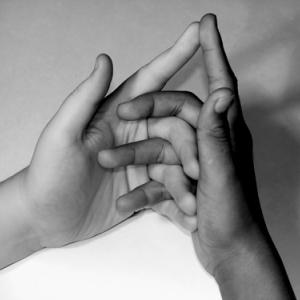
A movement of lay advocates speaking out against sexual violence is gaining steam in the faith communities. But are similar efforts happening inside church doors?
When it comes to leading denominational conversations on sexual violence, clergy across traditions express twin reactions: encouragement over the protocols already in place and the efforts of fellow advocates; and frustration with a culture of silence around sexual violence in the church. Despite strikingly different experiences across denominations — and church by church — the clergy, church staff, and seminarians who spoke with Sojourners are in agreement that addressing this issue in one’s own house is complicated at every level.
The result: a loss of potential by the American church to be a leading and vibrant institution of radical vulnerability and transformative healing.

We have learned from the crisis at Penn State University and other incidents that have gained national attention that it is not only religious authorities that turn a blind eye to abuses of power. The educational, legal, social service, and policing systems are broken when it comes to protecting children, and others who are vulnerable, from abuse.
Lest we forget our history and think that this is a uniquely 20th and 21st century problem, we need only turn to the Bible. In II Samuel, we are reminded that abuses of power, lust, and rage have always been part of the human experience.
An incident described II Samuel happens not in a religious or educational institution but in a family. It is not an isolated incident; it does not develop out of thin air. It is a case of “like father, like son.” Amnon’s father is King David, who in II Samuel 11, sees Bathsheba bathing and uses his power to have her brought to him so that he may “lay” with her.
It is only two chapters later that we read that Amnon, David’s son, is tormented by the beauty of his half-sister, Tamar. Amnon does not have the authority that his father David has, so he must use trickery instead of sheer power to get what he wants. After Amnon violently “lays” with Tamar, he is filled with hatred for her and forces her to leave his sight. In doing this, he shames her even further.
The scandal is not just that Amnon violates Tamar and the law of Israel, but when Tamar cries and ritually mourns her pain and disgrace she is told to be quiet. Her brother Absalom tells her to stop brooding over the episode. And while Absalom and their father, King David, are angry with Amnon for what he has done to Tamar, neither David nor Absalom even talks to Amnon about it. David does not punish his beloved firstborn son.
Perhaps one positive thing we can say about this story is that Tamar has a name; she is not anonymous like so many other powerless women in biblical stories. Tamar is named and remembered.
The Growing Faith Movement to End Sexual Violence
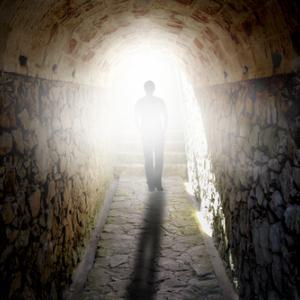
Though the church remains stuck in a culture of silence on sexual abuse, advocates are steadily building the platforms for individual voices to change the narrative. The depth of reconciliation that plays out upon these platforms can be profound. Rachel Halder, founder of Our Stories Untold — a blog that hosts stories from survivors of sexualized violence within the Mennonite church — has witnessed such moments happen in real time.
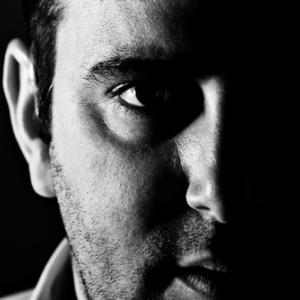
Editor’s Note: As we continue reporting on the important topic of sexual abuse and violence, Sojourners has opened up the Sexual Violence and the Church blog series for submissions. This piece is one such submission. If you are interested in submitting a post for the series, please email the Web Editor HERE.
I know now, what I wish I knew then. Only after speaking up, did I learn how common stories like mine are to women across the globe. I know the warning signs and have a clearer picture of what is and isn’t acceptable behavior. I long for each of us to wrestle with the truth that we are never to blame — no matter how we dress, what we look like, or how much we’ve had to drink.
We never, ever deserve to have our bodies treated as objects of shame.
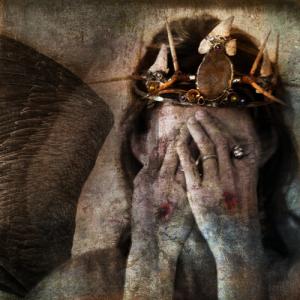
I first became aware of the realities of sexual abuse in the church at the tender age of five. I happened to look at the television screen and witnessed police officers escorting my hand-cuffed youth minister in front of a crowd of reporters screaming questions. The words “YOUTH PASTOR ABUSED CHILDREN” flashed across the television screen.
I was confused and scared. My family comforted and assured me that the pastor had only “hurt” teenage boys and that I was safe. The church hired a new minister and, on the surface, life seemed to resume to normal for our congregation. But as a child I had no idea of the effects of the abuse and its aftermath had on the survivors, their families, and our church community. Many families soon experienced disintegrating marriages, friendships were broken, and faith was lost. One survivor’s family had their home repeatedly vandalized and were forced to move hundreds of miles from our town to escape fellow believers who grew angry with them for filing a lawsuit against the perpetrator.
Church leaders shunned media attention and feared “airing dirty laundry” in public, encouraging members to keep the experience a secret for the sake of the boys and church. As a child, and then a teenager, growing up in an otherwise loving, connected church, I never remember hearing church leaders address this aspect of our shared history in the open. To some of the survivors and the broken-hearted, the silence on this topic was welcome; to others it was deafening. While secrecy was the rule, the legacy of the abuse was real and active in the community. Rather than being cared for with dignity and love, the survivors and their families felt that they were a shameful secret to be whispered about and hidden. I learned as an adult that I was intimately connected with some of the survivors but never knew about their silent pain. I had no idea that I was a participant in a culture of silence and shame that often surrounds sexual abuse and is especially pronounced when boys are abused by men in the church.

Most of us are too familiar with this story: an Upper Midwestern Baptist minister claims that “God made Christianity to have a masculine feel [and] ordained for the church a masculine ministry.” Or a Reformed Christian pastor mocks the appointment of the first female head of the Episcopal Church, comparing her to a “fluffy baby bunny rabbit.” Or a Southern Baptist megachurch pastor in California says physical abuse by one’s spouse is not a reason for divorce. Or numerous young evangelical ministers brag about their hot wives in tight leather pants.
Fewer of us are familiar with this story: Tamar is raped by her half-brother Amnon. Tamar protests her brother’s advances, citing the social code of Israel, his reputation, and her shame, to no avail. Their brother Absalom commands her to keep quiet, and their father, the great King David, turns a blind eye.
What do these contemporary statements above, delivered into cultural megaphones with conviction and certainty, have to do with the Old Testament rape and silencing of Tamar? The difficult answer is, quite a lot. The narrative dominance of these stories rests on power and control, which — whether intentional or not — speaks volumes about whom the church serves and what the church values.
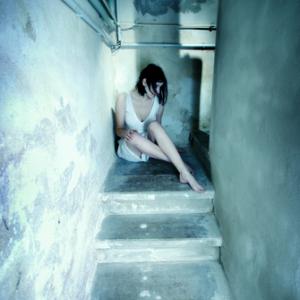
Several years ago, Amee Paparella was an eager student at a state university in Ohio. A conservative Christian, she quickly signed up to join the campus ministry. What she found in the group surprised her.
“It was so misogynistic,” Paparella recalled. “My leaders perpetuated this hyper-masculinized idea of God as physically a man.”
Over the years, Paparella wrestled to reconcile this image of God with her own faith, often to the discomfort of her peers. But an incident of sexual abuse within the ministry proved the breaking point. When it was discovered that a young man had been abusing his female partner, also in the group, the campus minister and student leaders responded by encouraging the young woman to stand by her man and to pray with the other students for his healing.